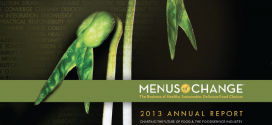In some tenuous but bold steps, Vermont and Hawaii have been working legislation through their state houses that would require the labeling of foods containing genetically modified organisms (GMOs). Long a source of controversy, GMOs are animals and plants (mainly fruits and vegetables) grown using bio-technological gene splicing.
GMO strains of popular produce items are often developed to bolster crop yields, increase sizes and deter pests. Supporters contend that GMOs support crop growth in dry conditions and represent a safer alternative to the more toxic pesticides currently widely in use.
The debate over their safety stems largely from the potential human side effects of these genetic modifications; GMO detractors claim that GMO produce ranges from harmful to fully toxic, as well as potentially allergenic and providing less nutrition than its traditionally-grown counterparts.
“It’s a consumer bill,” said Rep. Will Stevens, I-Shoreham, a member of the House Agriculture Committee. “It lets people have information that they wouldn’t otherwise have access to.”
This legal and philosophical battle has been going on for some years now. In fact, Whole Foods recently announced that “all products in our US and Canadian stores containing genetically modified organisms (GMOs) must be clearly labeled within five years.”
But what makes these new bills in Vermont and Hawaii noteworthy is that they represent the split between positions on these products; GMO proponents see no reason to label foods that contain GMOs, and, in fact, feel that this could create and/or support an unfair stigma about them. Detractors contend that GMOs represent a valid health concern, which justifies informing consumers as to their presence in the food they buy.
At the heart of this debate are three core elements: consumer health, corporate interests and the governmental role in mitigating them. It’s fascinating to watch it unfold, both objectively and from the CPS perspective, since this ongoing conversation centers so squarely in our course catalog—specifically, the Master of Science in the Regulatory Affairs of Food and Food Industries program.
As economics, technology and corporate and consumer law come into contact more and more with consumer health and nutrition, there will be a growing need for expertise in these increasingly inter-related and often controversial fields.
At the moment, the larger conversation is still happening—hesitantly. In the time between the Hawaii and Vermont state votes (the story linked to above) and this past week, there’s already been some loss in momentum; it looks less than optimistic for the Vermont bill this time around. But we’ll be watching it unfold, in the news and on the supermarket shelves.
Are you OMG about GMOs? Or are you somewhere in between?



I’m not really concerned with labeling of GMO. I still haven’t seen any real evidence that GMO products are harming humans (yes there are concerns of potential health issues but that’s all they are, just speculation). Driving in a car, actually unhealthy diets (high meat, processed foods, junk), lack of EXERCISE, smoking, are doing FAR more harm to the US population than anything else. I think labeling will just confuse consumers, who have been shown to have difficulty understanding simple nutrition labels let alone deciphering the significance of the presence of a GM ingredient in a product.
but of course, anyone who disagrees with GM labeling is either a corporate shill or hasn’t seen all the super secret confidential science that proves all GMOs are toxic and worse than drinking gasoline…..